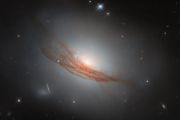
Copernical Team
Huge solar arrays permanently installed on NASA's Psyche spacecraft
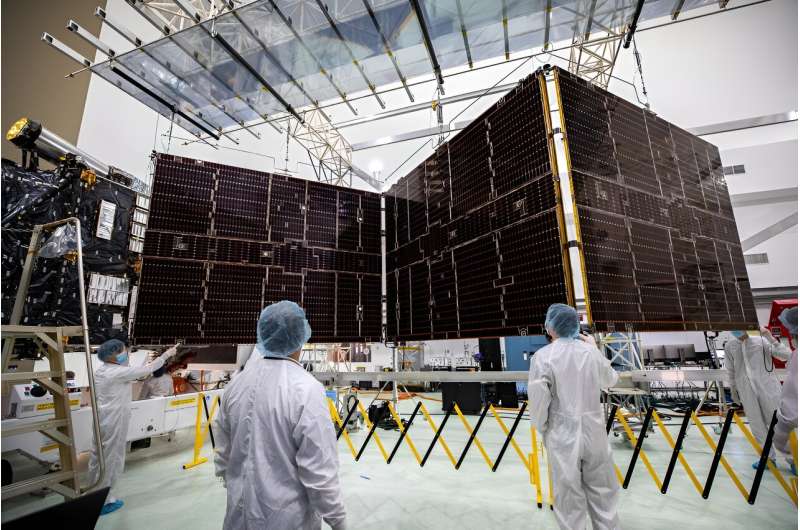
The Psyche mission is speeding toward its Oct. 5 launch date, preparing for the last of its launch-preparation milestones.
Robotically unfurling in a clean room near NASA's Kennedy Space Center in Florida, the Psyche spacecraft's jumbo solar arrays were tested and permanently installed on the orbiter in preparation for its 2.5 billion-mile (4 billion-kilometer) journey to study a metal-rich asteroid. The launch period opens Oct.
XRISM mission ready to explore universe's hottest locales
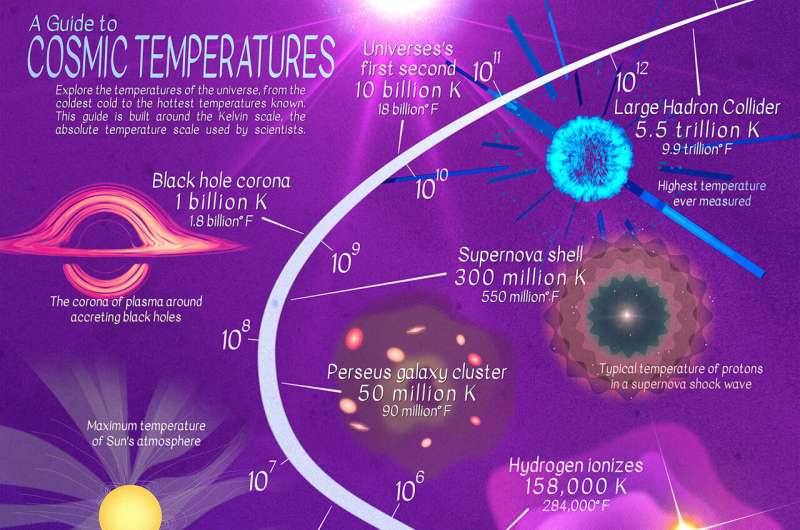
Japan's XRISM (X-ray Imaging and Spectroscopy Mission, pronounced "crism") observatory, expected to launch Aug. 25 (Aug. 26 Japan local time), will provide an unprecedented view into some of the hottest places in the universe. And it will do so using an instrument that's actually colder than the frostiest cosmic location now known.
China's Chang'e-7 will deploy a hopper that jumps into a crater in search of water ice
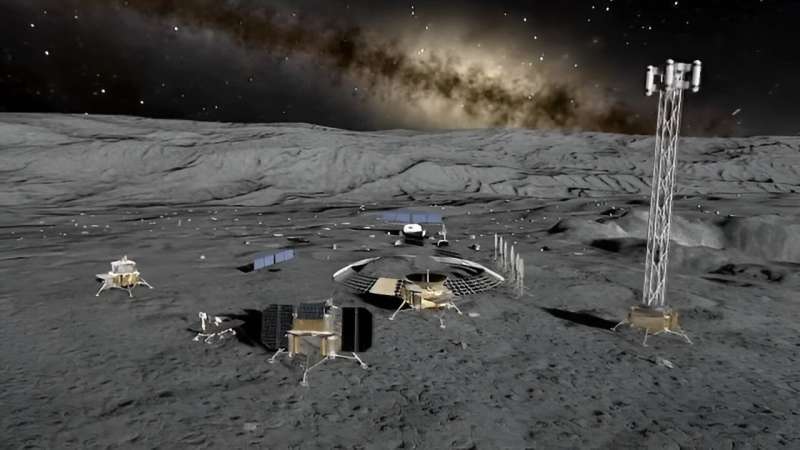
Researchers from the Chinese Academy of Sciences and the Chinese National Space Administration recently published a study in the journal Space: Science & Technology outlining how the upcoming Chang'e-7 mission, due to launch in 2026, will use a combination of orbital observations and in-situ analyses to help identify the location, amount, and dispersion of water-ice in the permanently-shadowed regions (PSRs) of the moon, specifically at the lunar south pole.
Once the Chang'e-7 orbiter successfully achieves lunar orbit, it will deploy a lander and mini-flying probe with both designed to perform in-situ analyses of lunar water-ice while the orbiter is expected to conduct remote observations using a variety of instruments.
The paper discusses how the mini-flying probe, which will be equipped with a water molecular analyzer to collect lunar surface frost water molecules, will be capable of flying from the sunlit regions on the lunar south pole to the dark bottom of the impact craters within the PSRs, which conventional lunar rovers were never designed to do, thus providing an enormous benefit to using this new robotic explorer.
Just add AI for smarter satnav... from rogue drone detection to safer driving
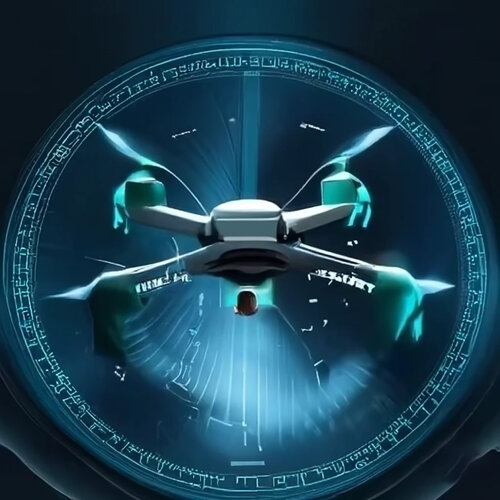
With our society producing more data than ever before, Artificial Intelligence, AI, is allowing us to gather, analyse and make use of it in novel ways, including in space programmes. Now AI is also being applied to satellite navigation by the engineering teams of ESA’s NAVISP programme, working with European industry and academia to invent the future of navigation. The result is a growing portfolio of prototype services, variously employed to improve space and Earth weather forecasting, enhance the performance of autonomous cars and boats, and help identify rogue drones in sensitive airspace.
Captain Kirk to the holodeck: Shatner beams in to remote meeting
 More than half a century after he materialized on far-flung planets as Captain James T. Kirk of the Starship Enterprise, William Shatner has beamed into a distant land in a demonstration of hologram technology.
The "Star Trek" actor was a guest speaker at an advertising conference in Sydney, Australia, where his lifelike image appeared in a box like a giant action figure - despite his being
More than half a century after he materialized on far-flung planets as Captain James T. Kirk of the Starship Enterprise, William Shatner has beamed into a distant land in a demonstration of hologram technology.
The "Star Trek" actor was a guest speaker at an advertising conference in Sydney, Australia, where his lifelike image appeared in a box like a giant action figure - despite his being Dune patterns reveal environmental change on Earth and other planets
 Dunes, the mounds of sand formed by the wind that vary from ripples on the beach to towering behemoths in the desert, are incarnations of surface processes, climate change, and the surrounding atmosphere. For decades, scientists have puzzled over why they form different patterns.
Now, Stanford researchers have found a way to interpret the meaning of these patterns. Their results, published
Dunes, the mounds of sand formed by the wind that vary from ripples on the beach to towering behemoths in the desert, are incarnations of surface processes, climate change, and the surrounding atmosphere. For decades, scientists have puzzled over why they form different patterns.
Now, Stanford researchers have found a way to interpret the meaning of these patterns. Their results, published China launches Fengyun-3 satellite
 China on Thursday launched a satellite into space from the Jiuquan Satellite Launch Center in Northwest China.
The Fengyun-3 06 satellite was launched at 11:47 am (Beijing Time) by a Long March-4C carrier rocket and successfully entered the planned orbit.
The launch marked the 481st flight mission of the Long March series carrier rockets.
span class="BDL">Source: Xinhua News A
China on Thursday launched a satellite into space from the Jiuquan Satellite Launch Center in Northwest China.
The Fengyun-3 06 satellite was launched at 11:47 am (Beijing Time) by a Long March-4C carrier rocket and successfully entered the planned orbit.
The launch marked the 481st flight mission of the Long March series carrier rockets.
span class="BDL">Source: Xinhua News A Galaxy 37 Horizons-4 performing well after launch
 Maxar Technologies, provider of comprehensive space solutions and secure, precise, geospatial intelligence, has announced that the Galaxy 37/Horizons-4 satellite built for Intelsat is performing as expected after launch. The spacecraft was manufactured by Maxar in Palo Alto, California, and launched on a SpaceX Falcon 9 rocket from Cape Canaveral Space Force Station in Florida.
Shortly aft
Maxar Technologies, provider of comprehensive space solutions and secure, precise, geospatial intelligence, has announced that the Galaxy 37/Horizons-4 satellite built for Intelsat is performing as expected after launch. The spacecraft was manufactured by Maxar in Palo Alto, California, and launched on a SpaceX Falcon 9 rocket from Cape Canaveral Space Force Station in Florida.
Shortly aft Russia to launch first lunar station in nearly 50 years
 Russia's first lunar station in nearly 50 years, Luna-25, will fly to the Moon in the early morning of Aug 11, local media reported on Thursday.
According to Russia's RIA Novosti, the launch date is set for Aug 11 when the Soyuz-2.1b rocket with the Fregat upper stage and the automatic station will lift off from the Vostochny Cosmodrome, located in the Amur Oblast, at 2:10 a.m. Moscow time
Russia's first lunar station in nearly 50 years, Luna-25, will fly to the Moon in the early morning of Aug 11, local media reported on Thursday.
According to Russia's RIA Novosti, the launch date is set for Aug 11 when the Soyuz-2.1b rocket with the Fregat upper stage and the automatic station will lift off from the Vostochny Cosmodrome, located in the Amur Oblast, at 2:10 a.m. Moscow time "Hoping for Frost" Sol 3906
 Earth planning: Tuesday, August 1, 2023: Today we wrapped a single-sol plan for sol 3906. Our planning for this sol was primarily constrained by power. We had attempted to conduct a frost experiment over the weekend which failed, and so we are striving to save power to be able to attempt the experiment again on Wednesday's plan. The blog post for that weekend's plan gives an excellent descriptio
Earth planning: Tuesday, August 1, 2023: Today we wrapped a single-sol plan for sol 3906. Our planning for this sol was primarily constrained by power. We had attempted to conduct a frost experiment over the weekend which failed, and so we are striving to save power to be able to attempt the experiment again on Wednesday's plan. The blog post for that weekend's plan gives an excellent descriptio 































